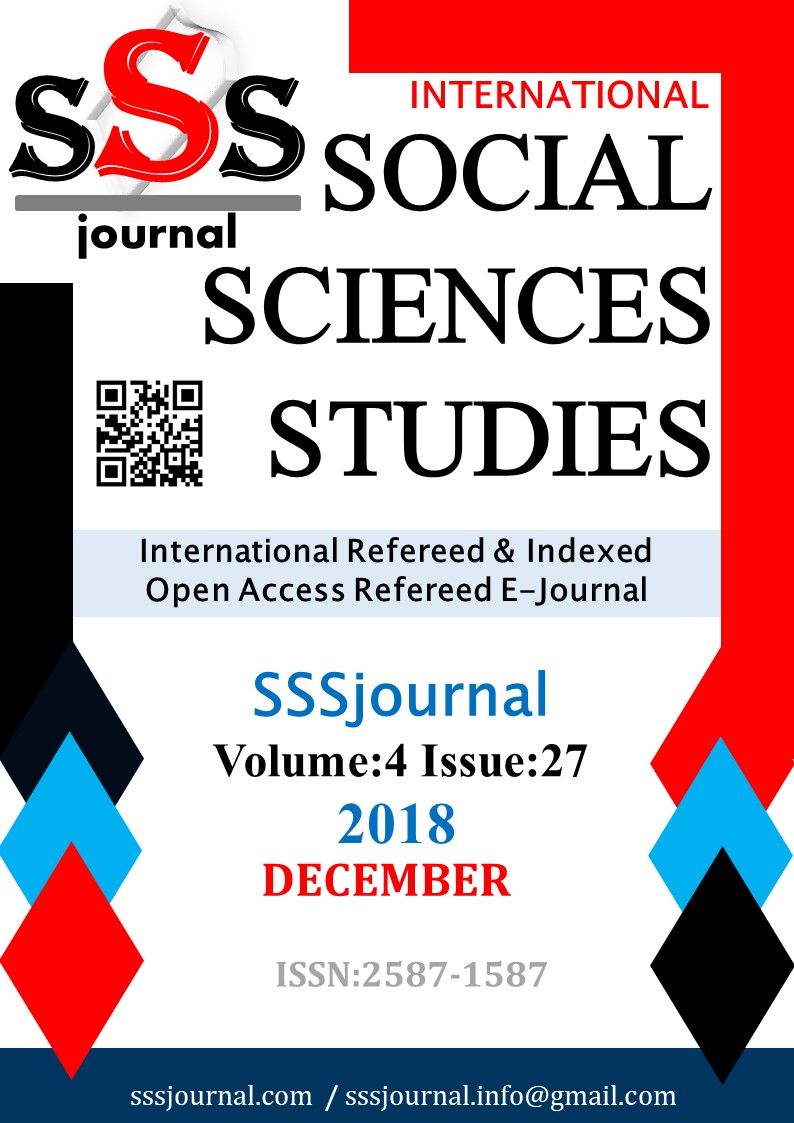“YOU’RE ON EARTH, THERE’S NO CURE FOR THAT!”: THE DYSTOPIAN FUTURE OF NATURE IN SAMUEL BECKETT’S ENDGAME
Author :
Abstract
Keywords
Abstract
In this dystopian, chaotic future, Samuel Beckett depicts a world with barren, desolate nature, which is a warning for humans to be more careful with their attitude towards nature. Beckett displays how destructive effects this lackness of nature may produce on people with the illustration of a few characters who suffer from the pain of this desert land as well as suffering from their physical deterioration. In this world of nothingness, the characters of the play, Nagg and Nell, living in dustbin, their blind son Hamm, unable to walk, and his servant Clove spend all their time together though they are not content with this situation. The nostalgia for old nature is noticeable in happy memories of Hamm, longing for the old days with beautiful forests, gardens and the sky, which prominently manifests the significance of nature to our mental health . This paper sets out to discuss Endgame from an environmental perspective, focusing on the relationship between characters and their environment.
Keywords
- 1. Adorno, Theodor W. “Trying to Understand Endgame.” (1961), trans. by Michael Jones, New German Critique, 26 (Spring-Summer 1982): 119-150.
- 2. Barfield, Steven. “A Full Moon Risen and the Ship Gathered Round Him.” New Versions of Pastoral: Post-romantic, Modern, and Contemporary Responses to the Tradition. Ed. David James, Philip Tew. Associated University Presses, 2009: 156-173.
- 3. Beckett, Samuel. Endgame. New York, Grove, 1958.
- 4. Campbell, Julie. “Endgame and Performances.” Samuel Beckett's Endgame. Ed. Mark S. Byron. Amsterdam-New York, Rodopi, 2007: 253-274.
- 5. Garrard, Greg. Ecocriticism. London and New York: Routledge, 2004.
- 6. “Endgame: Beckett’s Ecological Thought”. Samuel Beckett Today / Aujourd'hui, (23), Filiations & Connexions/ Filiations & Connecting Lines (2011), pp. 383-397.
- 7. Lavery, Carl and Finburgh, Clare. Rethinking the Theatre of the Absurd: Ecology, the Environment and the Greening of the Modern Stage. London, Bloomsbury, 2015.
- 8. Love, Glen A. “Revaluing Nature: Toward an Ecological Criticism”. The Ecocritical Reader Landmarks in Literary Ecology. Ed. Cheryll Glotfelty and Harold Fromm. Athens, University of Georgia Press, 1996: 225-240.
- 9. McKibben, Bill. The End of Nature. New York, Anchor Books, 1989.
- 10. Oppermann, Serpil. “Seeking Environmental Awareness in Postmodern Fictions”. ANQ: A Quarterly Journal of Short Articles, Notes, and Reviews 49 (3) (Spring 2008), 243-253.
- 11. Smith, Russell. “Endgame Remainders.” Samuel Beckett's Endgame. Ed. Mark S. Byron. Amsterdam- New York, Rodopi, 2007: 99-120.
